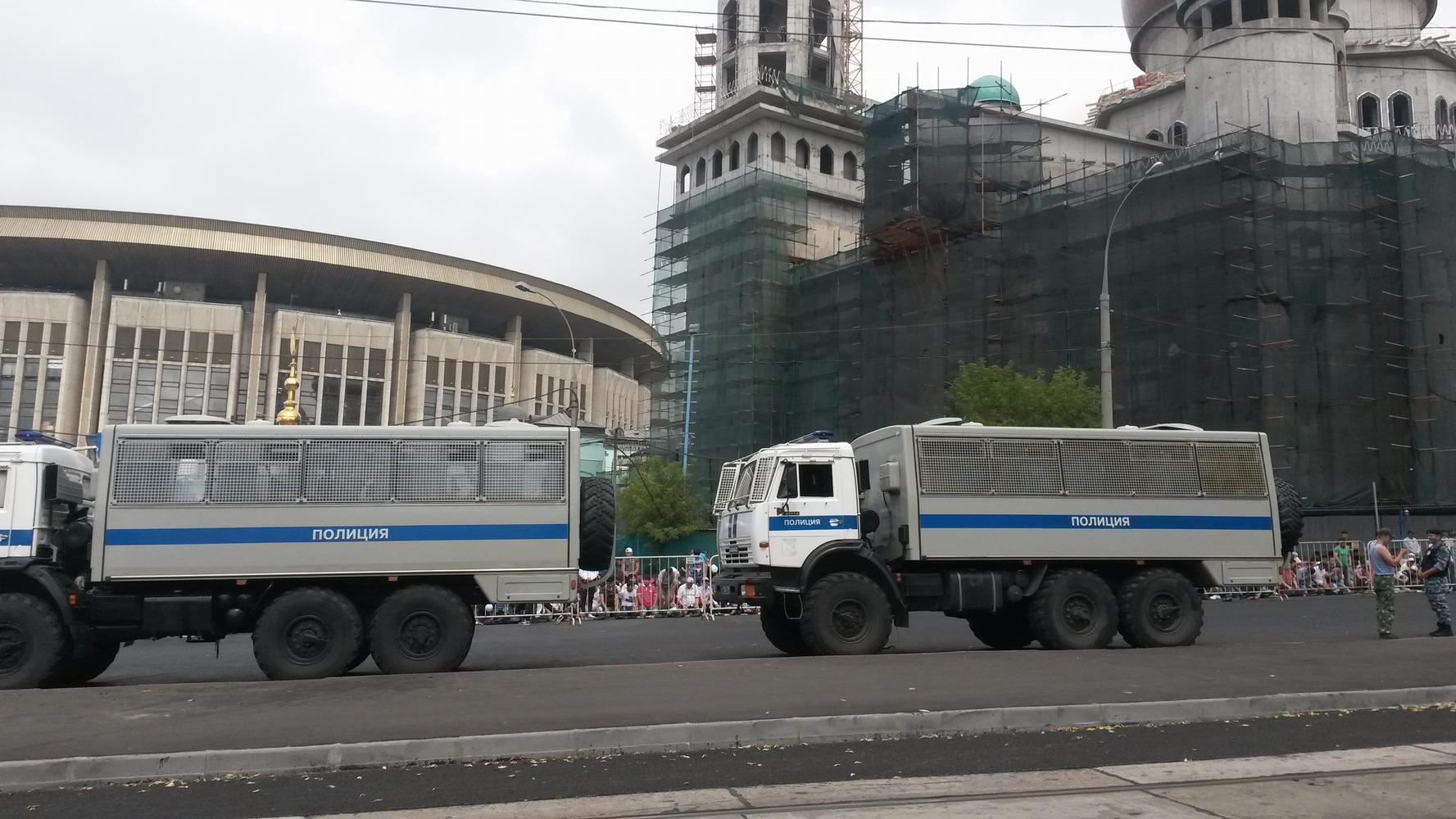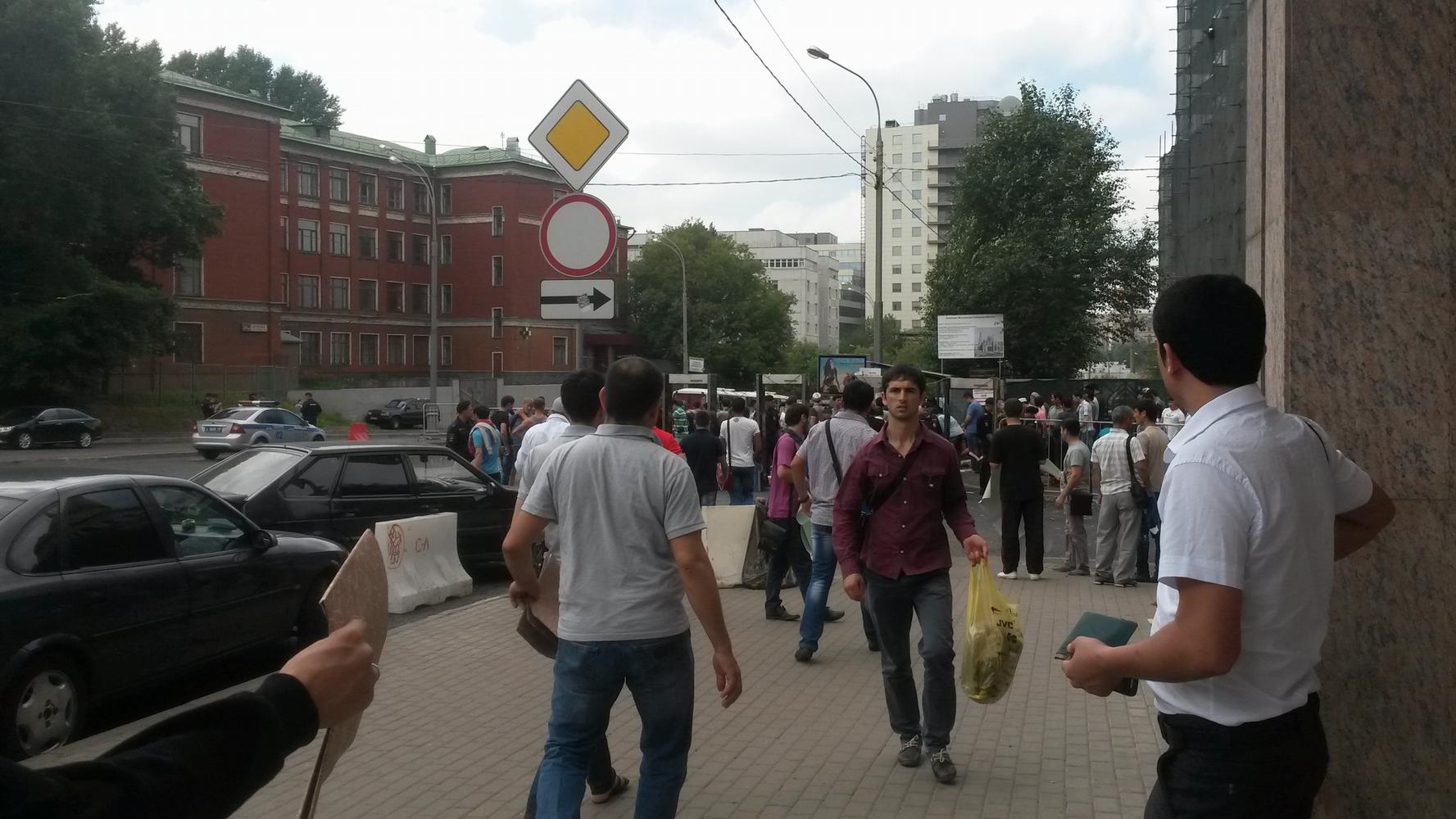Photo: Police stand guard at Friday prayer Credit: Edward Lemon
Friday at midday and I am at Prospekt Mira in Moscow. Leaving the metro I find myself amongst a group of skull-cap wearing Central Asians and south Caucasians heading for prayer. As we head towards one of Moscow’s five registered mosques, we pass the gypsy (zigani) women who usually sell nosvoy (a chewing tobacco popular amongst Central Asians); today they are selling prayer mats. A number of flyers are thrust into my hands. They advertise cheap flights to Central Asia, commission-free money transfers and free legal services for migrants.
Situated near the centre of Moscow, the area around Prospekt Mira is dominated by the Olympic Park. Once the staging point of the 1980 Summer Olympics, the stadium is now a shopping centre. This is a heavily migrant focused area. Outside the McDonalds a group of Kyrgyz men hover. They offer “help” obtaining migration documents. The shops in the stadium sell hijabs, food vendors prepare samsa, and a series of legal clinics offer services to migrants. Next to the stadium, a new cathedral mosque is currently under construction. In the meantime, the faithful have to conduct namaz (prayer) in a marquee. In the courtyard, shopkeepers sell books, prayer beads, DVDs and clothing.
Given the paucity of mosques in Moscow- a city with around two million Muslims- and the fact that it was Ramadan, the faithful spilled out onto the street. The imam-khatib, an ethnic Tatar, gave his sermon in a mixture of Russian and Tatar. He offered prayers for the victims of the recent Moscow Metro derailment and spoke about the importance of fasting during Ramadan.
What struck me about the ceremony, was the level to which the local police had locked down the space around the mosque. People pray, whilst armed police watch over them. Riot vans, filled with young recruits, fill the road opposite the mosque. Everyone has to pass through a metal detector in order to access the mosque.
Photo: Metal detectors at the entrance to the mosque Credit: Edward Lemon
When I asked a policeman why this was the cause, he curtly answered that it was for “public safety” (obschestvenii bezopasnost). But it remained unclear who is the referent object (that which needs protecting) and who is the threat. Have these measures been introduced to protect Muslims from far-right extremists, or do the police view the Muslims themselves as a potential threat? There are no metal detectors at orthodox services, which leads me to believe that it is the latter that is true. This fits within a broader public discourse in which Muslim migrants to Russia are framed as potential “radicals” and “criminals.” Moscow mayor Sergei Sobyanin was elected in September 2013 in an anti-migration campaign. He has subsequently vowed to curb illegal immigration and to prevent the construction of more mosques in the city.
But do such repressive measures work? Previous experience during the Soviet Union suggests that religion contains a great capacity to resist public marginalisation. The securitisation of Islamic space in Russia will likely drive disillusioned young migrants to further distrust the Russian state and undoubtedly contributes to the popularity of “underground” mosques that exist in bazaars across the country. As such securitising Islam- framing it as a security threat- could become a self-fulfilling prophecy.

